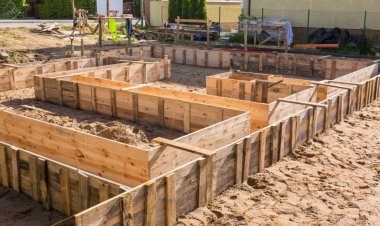Guideline For Buying Land in Kenya
Visit the Ministry of Lands to complete the land transfer ownership and ensure they have changed the records to read your name.

In Kenya, land is acknowledged as a key determinant of social, economic and political transformation. This has made it a valuable asset as it tends to appreciate depending on varied factors. When purchasing land different factors determine its cost such as location, size, usability and current real estate market conditions.
With the increased number of land agencies in Kenya, one needs to know the legality of the process of purchasing a piece of land transparently. Many Kenyans have fallen victim to fake title deeds, conmanship and failure to relocate to the piece of land purchased due to lack of credentials that justify their land ownership. To curb such mishaps the government of Kenya has put across regulations and steps to follow:
To begin with, after identifying a piece of land and coming into a settlement with a willing seller, inquire to see the title deed. Conduct a search at the Ministry of Lands to identify the real owners or if the property has any caveat.
Proceed to conduct a search with local authorities to know of any unpaid land rates. this can be done at the county offices where the land is situated. If there are any unpaid land rates, come into agreement with the seller on who will cover them.
Buy a land map, basically two, one of the specific piece of land and another one of the entire neighbourhood. This will enable you to locate the boundaries of your piece of land and also the exact measurement of the piece you are buying.
Involve your Surveyor to help you analyze the two maps and ensure the measurements align with the one in the maps. This is of key importance as it prevents land disputes.
Renegotiate with your seller the price of the piece of land. After coming to an agreement write it down for future assurances. When making the agreement, it is advised to involve a lawyer. The agreement is meant to clarify the price and mode of payment. The agreements acts as evidence just in case either of the parties goes against the agreement.
Initiate payment of the piece of land. You might consider paying for the land in instalments as it's not yet legally yours.
Engage the Lands Control Board (LCB), that is, the County Commissioners and local leaders to give consent for the land to be sold.
Complete payment of the land after acquiring consent from the Lands Control Board.
Visit the Ministry of Lands office with your identification documents. These include a Kenya Revenue Authority (KRA) pin, two passport-size photos and a copy of your title deed to transfer ownership of the land. Both the buyer and seller must sign the necessary transfer forms.
Make a stamp duty payment according to the value of the land. The stamp duty rate is 4% for properties within urban areas; cities and major towns and 2% for those outside municipalities.
Revisit the Ministry of Lands to complete the land transfer ownership and ensure they have changed the records to read your name.
Receive a new title deed indicating the transfer of the land to your name and confirm it through a search at the land registry.
If you have a real estate press release or any other information that you would like featured on the African Real Estate Blog Post, do reach out to us via email at [email protected]

































